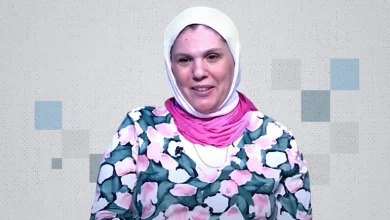It is natural for children to lie occasionally. But what if lying becomes a habit? How can parents understand the reasons that drive children, known for their innocence, to avoid telling the truth?
Educational experts say that children’s reasons for lying vary depending on their age. For example, a child under four may lie because they cannot differentiate between reality and fiction. Meanwhile, a child under six might lie differently, such as hiding toys under the bed when asked to clean their room. After reaching school age, a child might lie deliberately to create a space for freedom and privacy.
Why Do Children Lie?
To address this issue, parents should consider the child’s age, the circumstances and reasons for lying, and the frequency of this behavior.
For instance, many young children under six cannot clearly distinguish between fantasy and reality, and their “lies” may simply be expressions of their imagination. However, even a child as young as four can intentionally lie to avoid getting into trouble or to obtain something they want, according to a report by Verywell Family.
The report lists some common reasons for lying among school-age children, including:
- Engaging in imaginative play.
- Fear of punishment.
- Bragging to friends or classmates to enhance their status and impress them.
- Avoiding tasks they do not want to do, such as cleaning toys or tidying their room.
- Wanting to avoid disappointing their parents when expectations are too high.
- Feeling dissatisfied with something in their lives.
- Trying to gain attention.
How to Detect If Your Child Is Lying
Most children lie at some point, and it can sometimes be difficult to detect. However, Parents Circle outlines some signs that your child might be lying:
- Avoiding/Changing the Subject: If your child seems relieved when a conversation about a particular topic ends.
- Avoiding Eye Contact: Older children usually avoid looking at you or making eye contact when they lie.
- Shifting Weight from One Foot to Another: This may indicate discomfort and possibly a lack of truthfulness.
- Physical Gestures: Defensive reactions such as hand movements, touching the face or nose, or scratching the ear are subtle signs of lying.
- Explaining in Detail: When your child gives more information than usual about something.
- Delaying Answers: Repeating the question before answering or delaying the answer may indicate your child is trying to come up with a suitable but untruthful response.
- Inconsistent Story: When your child’s version of events seems inconsistent and has missing links.
- Change in Speech Pattern: Sometimes, speaking in a lower or higher voice can mean your child is attempting to lie.
- Convincing Expressions: Trying to lie can lead to feelings of fear, relief, anger, or pain.
- Maintaining Distance: If your child keeps a distance from you or holds a book or pillow across their chest as a barrier, this might be another non-verbal cue of lying.
What to Do When Your Child Lies
To answer this question, German psychology professor Christina Sukhotsky explained that parents should avoid harsh punishment for lying, as it often leads to the opposite effect. A recent Canadian study found that children who were frequently punished for their behavior lied more often and more convincingly than children who were not punished for lying.
Sukhotsky does not recommend harsh punishment. Instead, she suggests that parents should clearly discuss the issue of lying with their child, emphasizing that it is wrong and unacceptable. They should also try to find the real reason behind the child’s lie, such as fear of punishment. Additionally, parents should:
- Build Trust and Encourage Honesty: Reassure the child and encourage them to tell the truth regardless of the situation, praising and rewarding them when they do.
- Promote Honesty through Stories: Share stories that highlight the positive effects of honesty rather than the negative consequences of lying.
- Set a Good Example: Parents should act as role models by not lying in front of their children.
For more parenting tips, visit our website dzwatch.dz.
How Parents Can Deal with Children’s Lies



